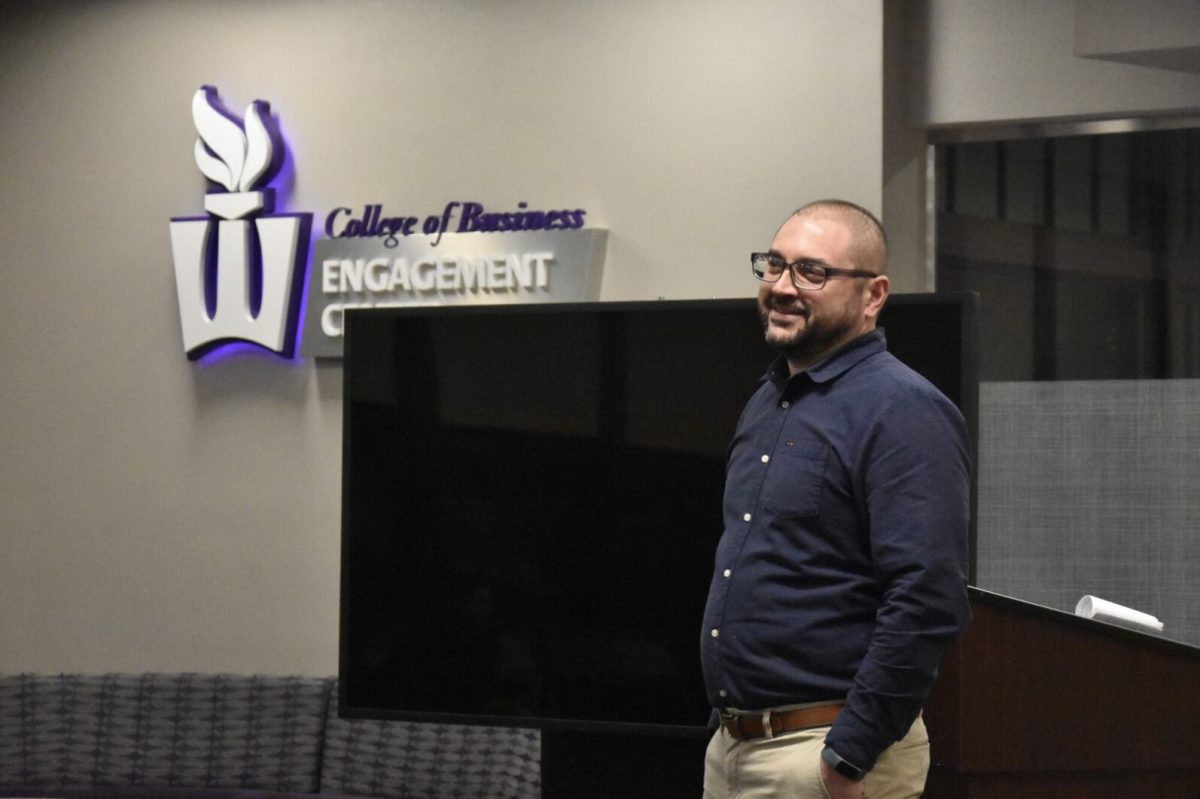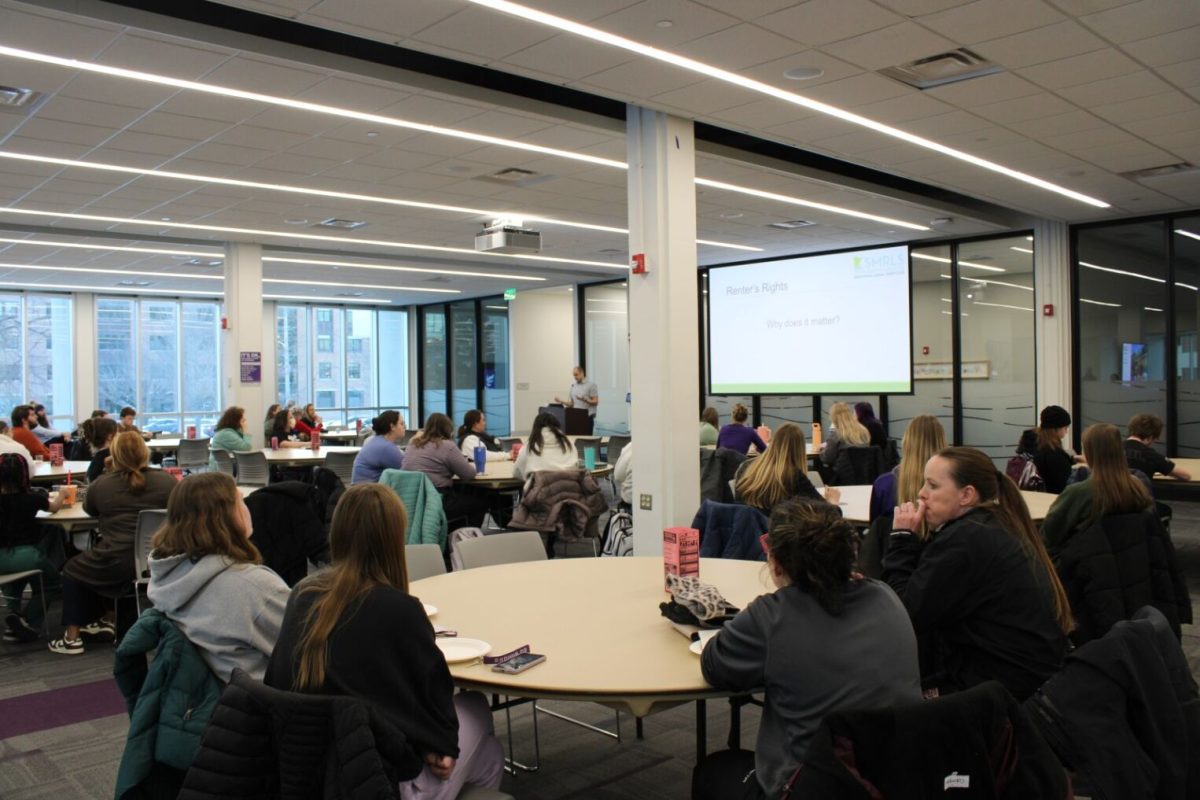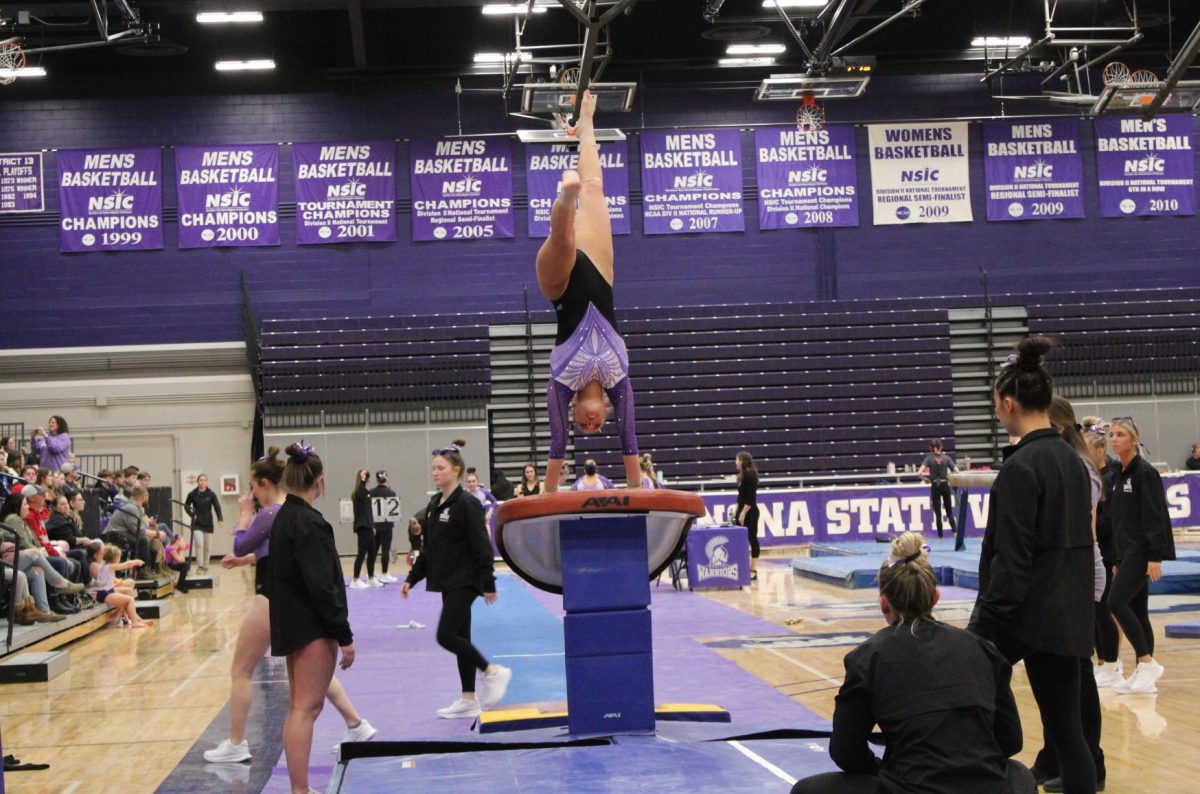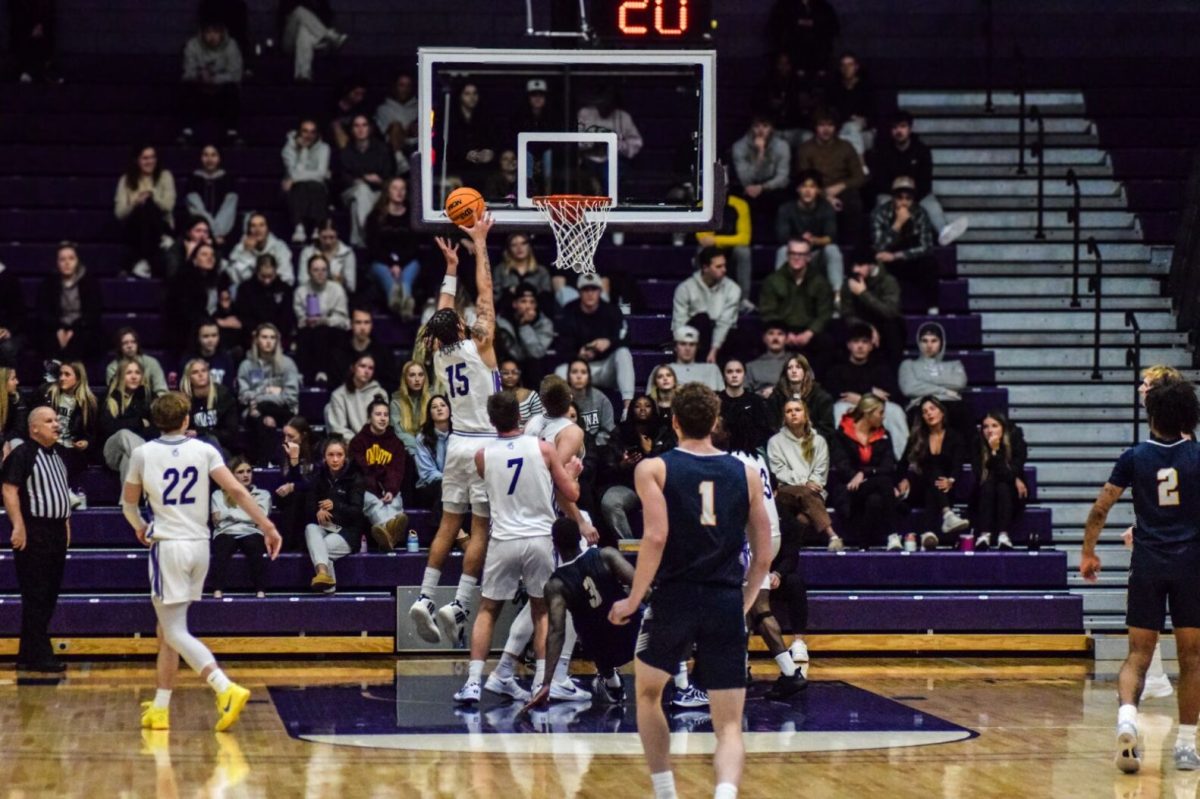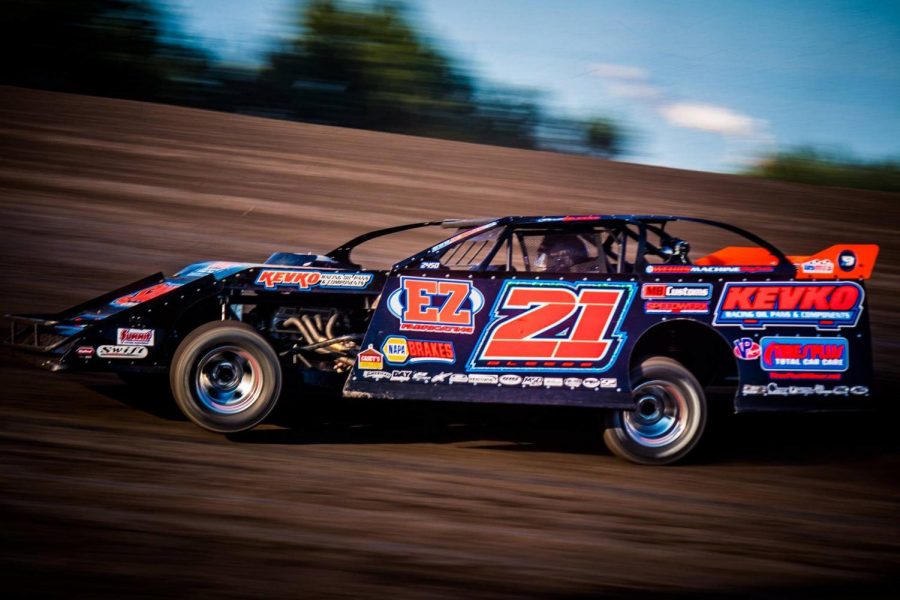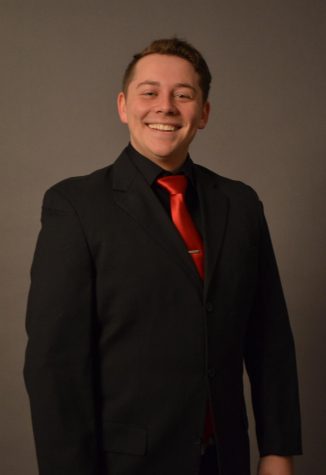Bleess brings new definition to student-athlete
Contributed by Tyler Rinken Photography
Jacob Bleess, senior business administration major, races around one of the corners of the Mason City Motor Speedway in Mason City, Iowa. Bleess is one of many Winona State students that would consider themselves a “non-traditional student-athlete.” Bleess can be seen racing at local tracks such as Mississippi Thunder Speedway in Fountain City, Wisconsin and Deer Creek Speedway in Spring Valley, Minnesota almost every week throughout the summer.
December 5, 2018
As he left class on a cool Friday afternoon earlier this fall, Jacob Bleess knew the big day was finally upon him. He dropped his backpack off at home, grabbed his gear and began getting in the zone for later that evening.
He walked past the grandstands, ready for what the night might bring him. After putting on his gear, he took a couple slow breaths, then slid his helmet on. He took one last look at the packed grandstands.
Then, he ignited the engine to his racecar.
Bleess, a senior business administration major from Chatfield, Minnesota, is one of the hundreds of Winona State students who would consider themselves “non-traditional student-athletes.”
A non-traditional student-athlete (NTSA) is a student who participates in a sport that is not university sponsored or is not a varsity level sport, such as club sports like rugby and hockey, or in Bleess’ case, stock car racing.
Bleess was initially introduced to the fast-paced world of racing at the age of 10, when his father first got him into go-kart racing. After two years behind the wheel of a go-kart, Bleess began feeling the urge for more power, the need for speed.
Bleess moved out of the go-kart industry and hopped behind the wheel of a full-sized “B-Modified” stock car, four years before he would be legally allowed to climb behind the wheel of a full-sized car on the road. He continued to race his B-Mod for the next four years, then moved his way up to the top stock car class in the “A-Modified” division, where he has remained since.
Stock car racing, otherwise known as dirt track racing, is similar to NASCAR racing in which a pack of cars race counterclockwise around a track. The main difference between the two is swapping out the traditional asphalt of NASCAR to a mixture of dirt and clay, as well as the various body styles and build of the cars.
Bleess can be seen weekly throughout the April-October season at local tracks such as Mississippi Thunder Speedway in Fountain City, Wisconsin and Deer Creek Speedway in Spring Valley, Minnesota.
A majority of his races are in the area, but it is not uncommon for Bleess to go farther south for the racing series, traveling to places such as Oklahoma, Nebraska and Kansas, among others.
Even though a majority of the racing season takes place over the summer, the first and last couple of months take place during the school year, which can make things difficult for Bleess.
“We go down south during the summer, but while in school we stay close to home, so I can do my homework and go to class,” Bleess said. “All that fun stuff.”
Along with a few months of actual racing, the off-season can also be a busy time for Bleess, as he uses this time to swap parts on his car and make sure everything is ready to go come spring.
Though his racing schedule is
more open than that of a traditional student-athlete, Bleess said there are conflicting schedules at certain times of the year.
“There are conflicts with school and racing, but school does come first,” Bleess said. “If it’s a big event, though, I go racing first, then do school work as needed.”
As an NTSA, there are many perks that Bleess and other athletes do not receive because their sport is not a university-sponsored event.
Justin Loehr, the associate athletic director of the Student-Athlete Success Center, said that the main disadvantage of being an NTSA would be the various resources the students do not have available to them.
Along with various sports scholarships, there are also other resources that NTSAs could be missing out on, such as the Student-Athlete Success Center.
“[The Student-Athlete Success Center] helps student-athletes in many ways,” Loehr said. “They hold weekly academic meetings with first-semester athletes, and athletes under the required GPA, as well as make referrals to tutoring services, access services and help with both career and major exploration.”
Along with the missing resources available, both agreed that there are other struggles to being an NTSA, such as professor’s reactions to missing class.
“It depends on the individual professor and how a student communicates with them but being a part of a university-sponsored event helps [when missing class for a sport].”
Bleess had similar things to say about different professors’ willingness to mark him excused for missing class.
“I try not to skip class, school comes first,” Bleess said. “Some professors don’t mind [skipping class for racing], but some do.”
In the end, however, it is not all challenges.
“I don’t have weekly meetings to go to like a football player would. I mostly get to pick my own times to race and work on the car,” Bleess said. “I can do schoolwork whenever I want, and put in the amount of hours I want to put in. I can pick and choose which races to go to, and when to take a break from school to work on the car.”



